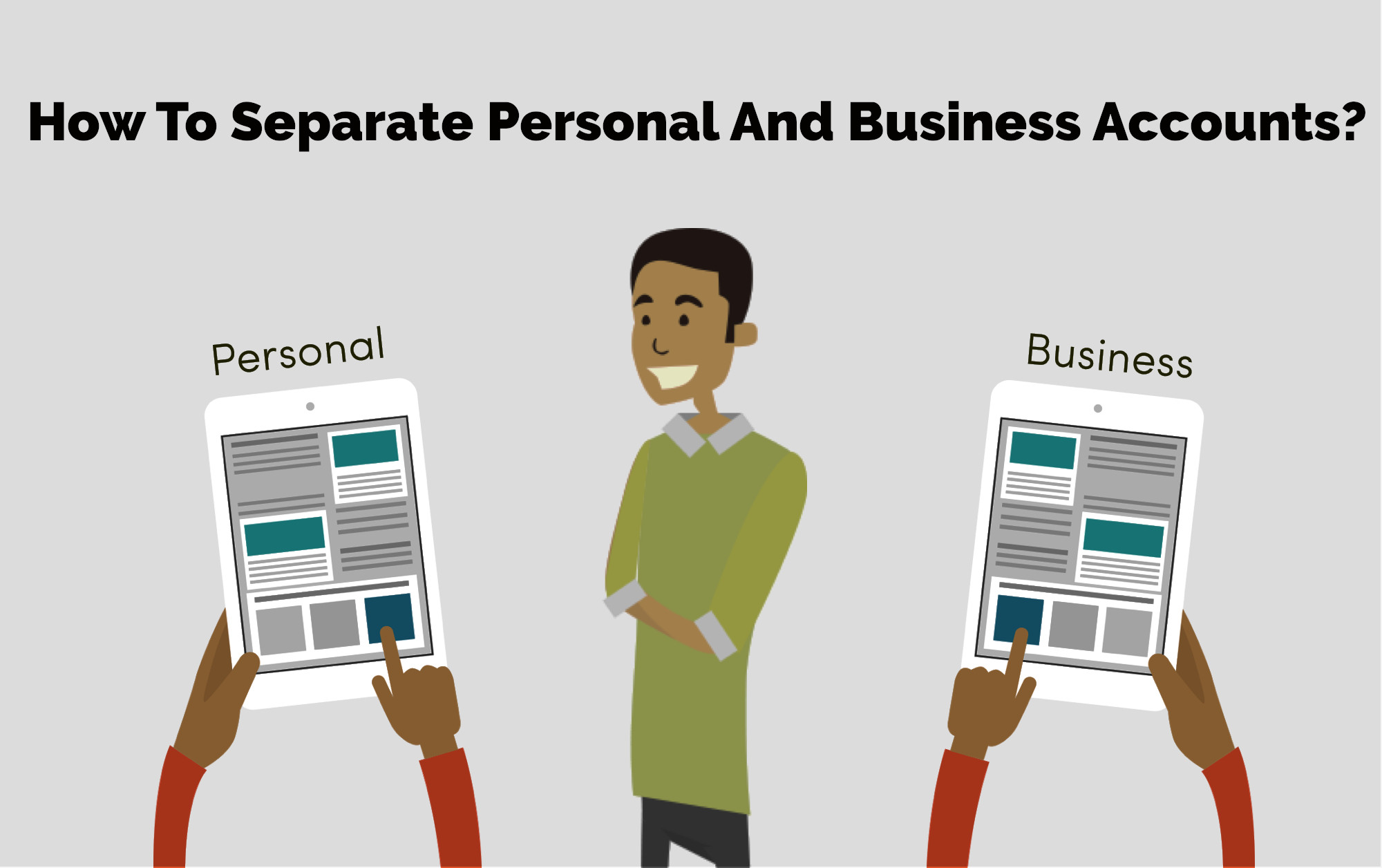Small business owners should operate in a business to realize the tax breaks at their disposal. For example, if you meet the requirements, you can deduct necessary and ordinary business expenses.
But business owners often find themselves in tax trouble when they mix business with personal matters. This mistake is also a prime target for IRS scrutiny in audits.
You must keep your business account separate from personal account for various reasons. The accountant helps you with this matter.
Why Not Mix Business And Personal Accounts?
There are reasons illustrated stating why it is not a good idea to mix business and personal accounts:
- It doesn’t look professional: you are dealing with a customer and pull out a personal checkbook or credit card to pay a business expense. Now, this gives the impression that you are not the real business owner.
- In the same way, lack of separation screams “hobby” to the IRS. The IRS is quick to deny deductions and losses for hobbies. If you want the IRS to look at your business as legitimate and not any hobby, keep the personal and business accounts separate.
- Your income and business deductions don’t have a distinction. If you want to claim expenses as deductions, you must be able to show these deductions were for the business purpose.
- Sorting personal records during tax time can become a nightmare. Capture the business expenses in your business account to make it easier to claim the deductions.
- You may get audited by the IRS. Now, the IRS is likely to audit the business and deny deductions and business losses. This happens if you don’t have a clear separation between business and personal expenses.
If you have a home-based business, for instance, the IRS may not allow home business expenses if they are not separate.
Small business accounting services can help. The experts know how to offer you the assistance so you can separate the business account from the personal one.
-
Arms-length transactions
All transactions between you personally and the business should be an arm’s length. This means, the transactions clearly separate you as the personal entity and the business as the entity.
-
Keeping distinct accounts
Most importantly, set up separate checking accounts for business and personal use. You must write checks for business purchases from your business account and personal purchases from the personal one.
In other words, put business income in the business account and personal income in your personal account. Keeping the business account separate from the personal matters.
-
Make this official
Consider establishing a limited liability company (LLC) or an S Corp for your business.
Sit down with your accountant and determine what entity makes the most sense, how this business will impact the taxes and financial plan, etc.
The business entities will give your personal finances a new level of liability protection, that must come in handy if the business gets sued.
-
What if you make a mistake?
To err is human. Just ensure you document the mistake and edit the transaction in the business records. For instance, if you deposit a personal check in the business account, label it as owner’s equity.
If you need to take the money back out, enter the check as the draw on your owner’s equity. When you forget to pay for something with the personal credit card, consider it an investment.
Every transaction should have proper labels, at arm’s length, and reasonable.

How To Separate Personal And Business Accounts?
Luckily, small business owners who haven’t separated their expenses can still do so by following some tips:
-
Register The Business
The first step to separate yourself from the business is officially registering the business.
There are several business structures you can choose from. Your accountant will help you pick the right one as per your need. Incorporations offer the strongest protection to its owners from personal liability, enhances the business credibility and gives easier access to capital.
However, incorporations also come at a higher cost than other business structures, including high taxes, etc. Ensure you do your research on business structures before registering.
-
Open The Business Account
An efficient way to separate the personal and business accounts is to divide them into separate, designated bank accounts.
After you receive the EIN, open the checking and savings account in the business’ name. The number of banks requires an EIN to open a business account. Conduct the transactions through business accounts.
Bottom Line
Finally, it is mandatory to keep business account separate from personal. Diving your personal and business finances is the first step to transforming the idea into a reality.
After your small business becomes a registered entity, a business becomes a reality. Separating finances will help ensure it succeeds.
Contact Us Today:
Locations:

